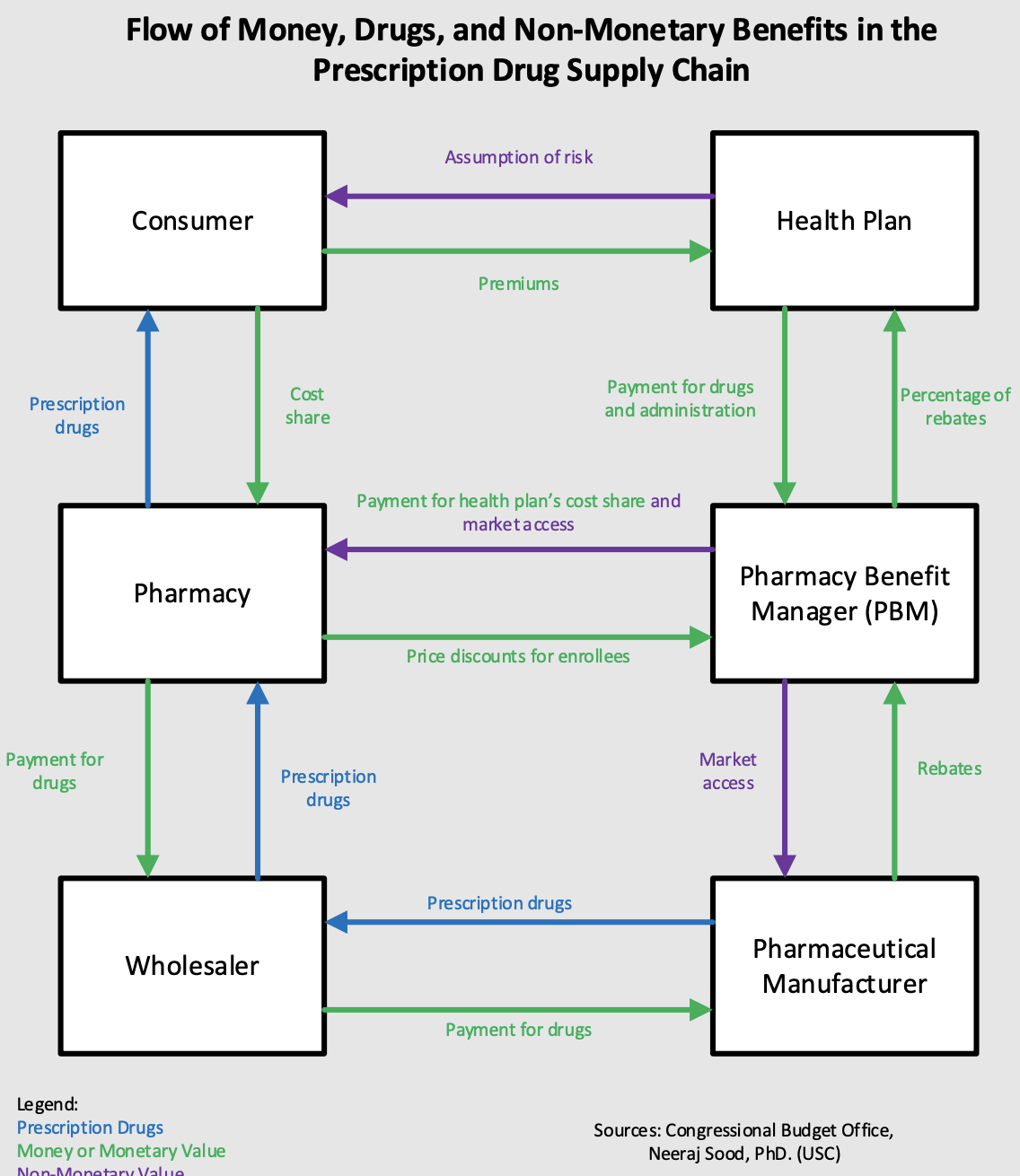 In February of last year, Michigan Governor Gretchen Whitmer convened a task force to study the causes of increasing prescription drug costs and to make recommendations to solve this intractable problem. Today, the task force released its report and it has a number of steps the state government can take help get control over drug prices which are rising much faster than the rate of inflation. It outlines key policy solutions and offers recommendations on four key areas: Transparency, Affordability, Accountability, and Accessibility.
In February of last year, Michigan Governor Gretchen Whitmer convened a task force to study the causes of increasing prescription drug costs and to make recommendations to solve this intractable problem. Today, the task force released its report and it has a number of steps the state government can take help get control over drug prices which are rising much faster than the rate of inflation. It outlines key policy solutions and offers recommendations on four key areas: Transparency, Affordability, Accountability, and Accessibility.
The report goes into detail about the complex interplay of multiple stakeholders in the prescription drug market, shown here graphically:

[Source: Report of Governor Gretchen Whitmer’s Prescription Drug Task Force]
Many of the players in this arena have what the report refers to as “misaligned incentives”. In other words, in order to maximize their own situation, they are incentivized to take actions which force the consumer to pay more for their prescription drugs. As you might imagine, these actions are generally to increase their own profits.
Here are the top-line recommendations made by the task force:
- Requiring manufacturer, Pharmacy Benefit Manager (PBM), and hospital chargemaster transparency reports
- Setting price controls, such as copay caps and applying rebates to consumer cost-sharing
- Licensing PBMs and registering them under the Third-Party Administrator Act
- Penalizing unsupported price increases
- Using International Reference Rate pricing
- Restricting the use of gag clauses in PBM contracts with pharmacies
Reading the report, there was one thing that I found especially shocking/not shocking. It lists over a dozen different pieces of legislation introduced in the state legislature over the past couple of years to deal with many of the causes of high prescription drug costs and not a single one of them got out of committee in our gerrymandered, Republican-controlled legislature. In other words, Republicans have, in a totally on-brand effort, protected drug manufacturers, Pharmacy Benefit Managers, and all of the other corporate interests involved in the prescription drug market, ensuring that they will continue to enrich themselves at the expense of their prescription-using customers.
In addition to the recommendations listed above, the report discusses sixteen other “future considerations”
- Rate Setting and Spending Targets
- Prescription Drug Tax Credits
- Taxing Drug Price Increases that are Greater than the Rate of Inflation
- Value-Based Contracting
- Prohibit Pay for Delay
- Expand the Use of Medication Therapy Management
- License Pharmaceutical Sales Representatives
- Repeal Drug Industry Immunity Law
- Prohibit Spread Pricing
- State Accountability Review Board
- Empower the Department of Attorney General to Take Action
- Challenge Monopoly Power
- Encourage Public Production of Drugs
- Prescription Drug Importation from Canada
- Waste Free Formularies (Public Entities)
- Drug Spending Cap
The first of these is worth a closer look. Here’s what the report says about rate setting and spending targets:
Legislative or administrative action could be taken to establish drug affordability review boards – impartial entities made up of multiple stakeholders that would give the state the ability to establish certain rates, set spending targets, and limit how much its residents may pay for certain high-cost drugs.
These drug affordability review boards are an important tool for states to use in lowering prescription drug costs and protecting consumers from being fleeced. Right now, only six states have them: Maine, Maryland, Massachusetts, New Hampshire, New York, and Ohio. All of them are new with the first one created in Maryland in 2019. Here is Maryland House Speaker Adrienne Jones talking about their effort:
Like Michigan, Maryland’s Republicans are dead set against helping consumers with the cost of their prescription drugs. Their Republican Governor Larry Hogan vetoed legislation to temporarily fund their review board even though they would eventually gotten the money back! Their state senate voted to override Gov. Hogan’s veto on a party-line vote. A vote in their House of Delegates will likely happen in February.
Fighting escalating prescription drugs costs should NOT be a partisan issue. Everybody, no matter where they live, where they come from, how old they are, or how much money they make is impacted by out-of-control drug prices. But, sadly, only Democrats seem to be taking the side of the consumers.



